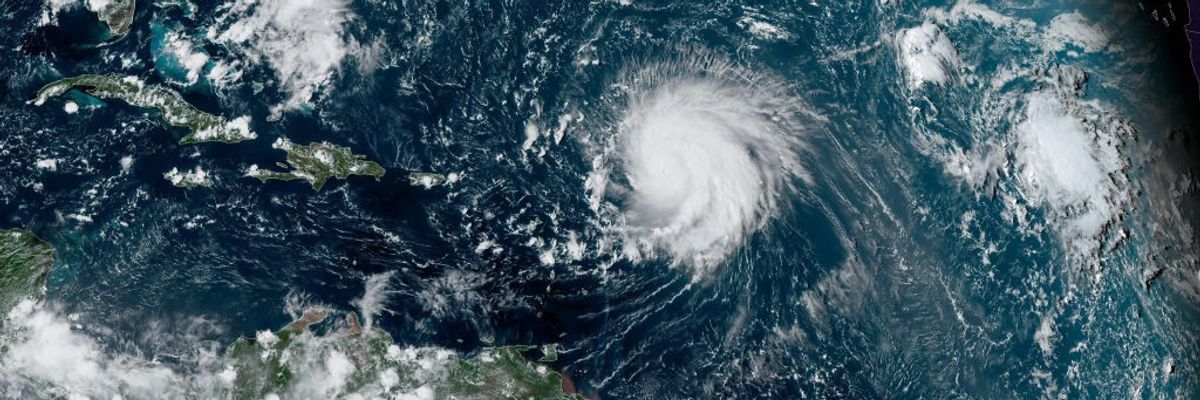Hurricane Lee, which became a monster Category 5 before weakening over the weekend and which may or may not ever make landfall, is being treated as a warning by meteorologists and climate experts who say the storm's behavior over recent days could have dire future implications.
The National Hurricane Center said Saturday that Lee would move well north of Puerto Rico and the Virgin Islands but that dangerous beach conditions may be seen along the Atlantic coastline of the United States. On Thursday, the hurricane jumped from a Category 3 storm to a Category 5 in less than 24 hours at a pace faster than what is called "rapid intensification"—when sustained winds increase by 35 mph over the course of a day.
Marshall Shepherd, director of the University of Georgia's atmospheric sciences program and a past president of the American Meteorological Society, explained to the Associated Press how Hurricane Lee intensified at more than double that rate, moving it into a category he called hyperintensification.
"This one increased by 80 mph (129 kph)," Shepherd said. "I can't emphasize this enough. We used to have this metric of 35 mph, and here's a storm that did twice that amount, and we're seeing that happen more frequently." If future storms, fueled by increasingly hotter ocean temperatures, continue with this trend it will have disastrous consequences for regions that rarely, if ever, experience such powerful storms.
As Lee became reached Category 5 status on Thursday, meteorologist Jeff Berardelli pointed out the increasing frequency of storms reaching that threshold:
Responding to the same trend and data, climate movement organizer Jamie Henn said: "This is your hurricane on fossil fueled climate change."
And it's a global phenomenon, not just for hurricanes forming in the Atlantic. For the first time since records began, Category 5 storms (or the equivalent) have been recorded in each of the world's designated cyclone basins.
"Hurricanes are getting stronger at higher latitudes," warned Shepherd in his assessment. "If that trend continues, that brings into play places like Washington, D.C., New York and Boston."
As science and environment journalist Matt Simon wrote for Wired on Saturday:
Rapid intensification makes hurricanes extra dangerous because they change so quickly and dramatically as they approach the coastline. It's a bit like watching a driver who’s cruising along at 25 miles per hour and then guns it right before hitting an obstruction. Residents might be expecting a storm they can ride out, but are instead faced with a full-scale hurricane that's quickly grown monstrous.
Exploring the science and talking with experts of rapid intensification, Simon explained why Lee is being treated as "a warning" and that people and communities should "get ready for more of this phenomenon as the planet warms."




